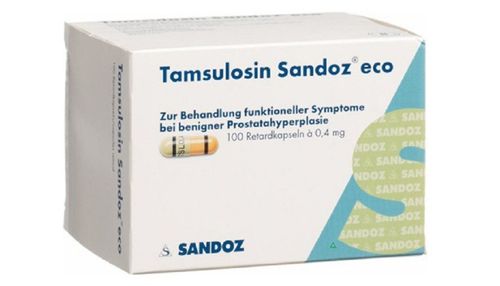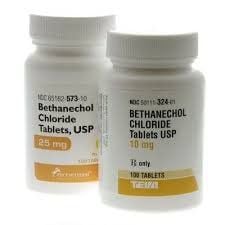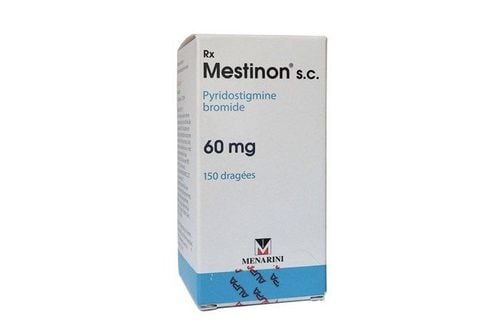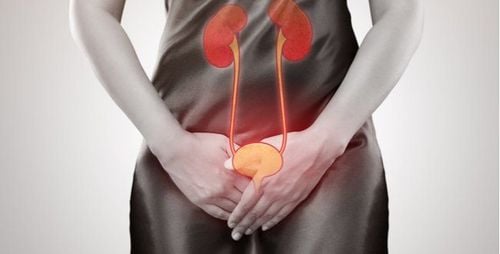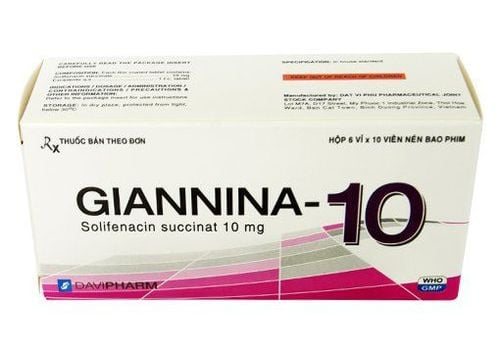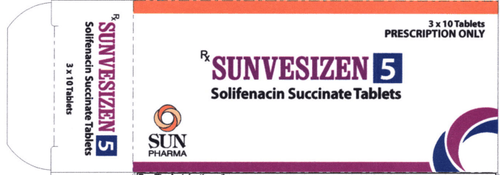This is an automatically translated article.
Posted by Pharmacist Huynh Xuan Loc - Faculty of Pharmacy - Vinmec Central Park International General Hospital
Solifenacin is a medicine prescribed by doctors to treat overactive bladder. To ensure effective treatment, patients need to take medicine according to prescription or under the guidance of a doctor or pharmacist.
1. How does Solifenacin work?
Solifenacin, commonly known as Vesicare, is an anticholinergic drug used to treat overactive bladder. It helps to increase urine retention in the bladder, thereby helping to treat urge incontinence (urinary incontinence) or urinary frequency and urgency.
2. Rational use of Solifenacin
Solifenacin 5mg is a prescription drug, so patients should not arbitrarily use the drug without a prescription from a specialist. Patients should also be evaluated for other possible causes of urinary frequency, such as heart failure or kidney disease, before taking Solifenacin.
When visiting the doctor, the patient should inform the doctor if there are problems such as difficulty urinating, urinary retention, severe gastrointestinal obstruction (toxic megacolon), myasthenia gravis, decreased bowel movements, glaucoma, impaired vision (glaucoma), liver or kidney disease, gastroesophageal reflux disease, autonomic neuropathy or a history of hypersensitivity to solifenacin or any of the excipients. If one of these cases is encountered, caution should be exercised when using Solifenacin .
In addition, the patient also needs to list to the treating doctor any drugs currently or recently taken to avoid adverse interactions such as:
Drugs with anticholinergic effects (increased effects and risks) chance of experiencing side effects); Cholinergic-enhancing drugs (decreased/disappeared of Solifenacin); Drugs that stimulate gastrointestinal motility (such as metoclopramide, cisapride by reducing the effect of these drugs); Anti-osteoporosis drugs (bisphosphonates due to their increased risk of esophagitis); Antifungal drugs (ketoconazole, itraconazole reduce the elimination of solifenacin); Antiretroviral drugs (ritonavir, nelfinavir reduce elimination of solifenacin); Antiarrhythmic drugs (verapamil, diltiazem reduce elimination of solifenacin); Anti-tuberculosis drugs (rifampicin, increased elimination of solifenacin); Antiepileptic drugs (carbamazepine, phenytoin, reduced elimination of solifenacin) Increasing or decreasing the excretion of Solifenacin both alters blood levels of the drug leading to changes in its effectiveness and potential for adverse effects.
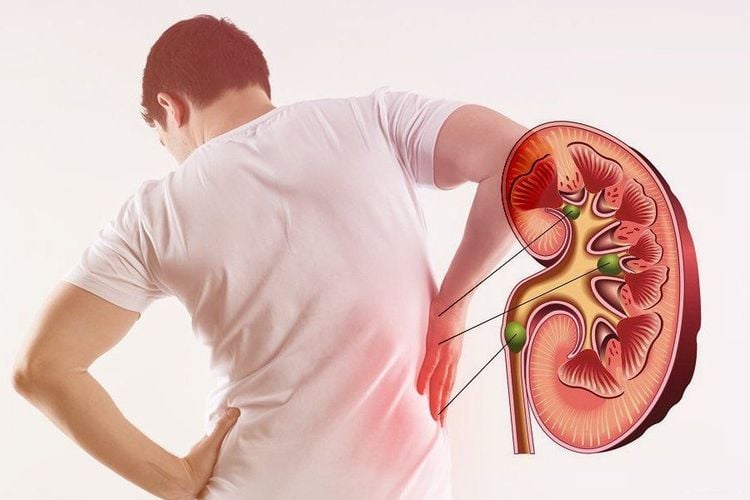
Bệnh nhân mắc bệnh thận nên lưu ý khi uống thuốc solifenacin
3. Common side effects when taking Solifenacin
Like other drugs, Solifenacin can also cause unwanted effects in some people taking it.
Solifenacin has been reported to cause angioedema with airway obstruction (difficulty breathing) in patients. If the patient appears these or other allergic reactions on the skin such as rash, red, scaly skin ... it is necessary to immediately notify the doctor, pharmacist or immediately go to the nearest medical facility for evaluation. and prompt treatment.
The most common side effects of the drug are dry lips, dry mouth, especially when the drug is used for a long time. In addition, you may experience symptoms such as blurred vision, constipation, nausea, and indigestion along with digestive symptoms such as bloating, abdominal pain, heartburn and stomach upset.
Less common side effects include urinary tract infection, cystitis, drowsiness, taste changes, dry eye irritation, dry nose, gastroesophageal reflux, dry skin, difficulty urinating or fatigue, leg edema ... appear with a frequency of less than 1% of people using the drug.
Patients should inform their doctor about these side effects at regular check-ups or sooner if symptoms are persistent, bothersome, and affect quality of life. In addition, other disorders suspected to be drug-induced should also be reported for appropriate management.

Một tác dụng của thuốc điều trị bệnh bàng quang tăng hoạt Solifenacin là khó thở
4. Notes when using the drug Solifenacin
To ensure the effectiveness of treatment, patients need to take the drug according to the prescription and the correct dose prescribed by the doctor. Usually, the drug is taken once a day at a dose of 5mg or 10mg depending on the condition of the disease. Patients are also not allowed to increase the dose of the drug on their own without consulting the treating doctor.
Solifenacin is not recommended in children because safety and effectiveness in children have not been established. For the treatment of bedwetting or similar diseases in children, consultation with an appropriate pediatrician is required.
The dose may be reduced by the doctor if the patient has liver failure, severe renal failure or concomitant use of drugs that increase blood levels of solifnacin such as ketoconazole, itraconazole, ritonavir, nelfinavir ... Therefore, it is necessary to Notify the treating physician if the patient is taking or has recently taken these medications.
The drug is swallowed whole with water or other liquid drink, do not crush. Medicines can be taken with or without food.
If a dose is forgotten, the patient can take it again as soon as he remembers. If it has been more than 24 hours since the usual time of taking the drug, take the new day's dose; Do not take the missed dose and do not take more than 1 dose per day.
When there is a suspicion that the patient overdosed by mistake or the child accidentally took the medicine, it is necessary to immediately notify the doctor, pharmacist and take the patient or child to the nearest medical facility for timely treatment. Overdose symptoms may include headache, dry lips, dizziness, drowsiness, blurred vision, hallucinations, convulsions, shortness of breath, tachycardia, dilated pupils... that need to be handled in time. earliest.
When stopping the drug, the disease may return or get worse, so the patient should consult the doctor before deciding to stop the treatment. The drug should not be used by pregnant women unless indicated and considered by the treating specialist.
Please dial HOTLINE for more information or register for an appointment HERE. Download MyVinmec app to make appointments faster and to manage your bookings easily.
References:
Vesicare 5mg film-coated tablets, Patient information leaflet, https://www.medicines.org.uk/emc/product/5559/pil Vesicare 5mg, drug instruction sheet




